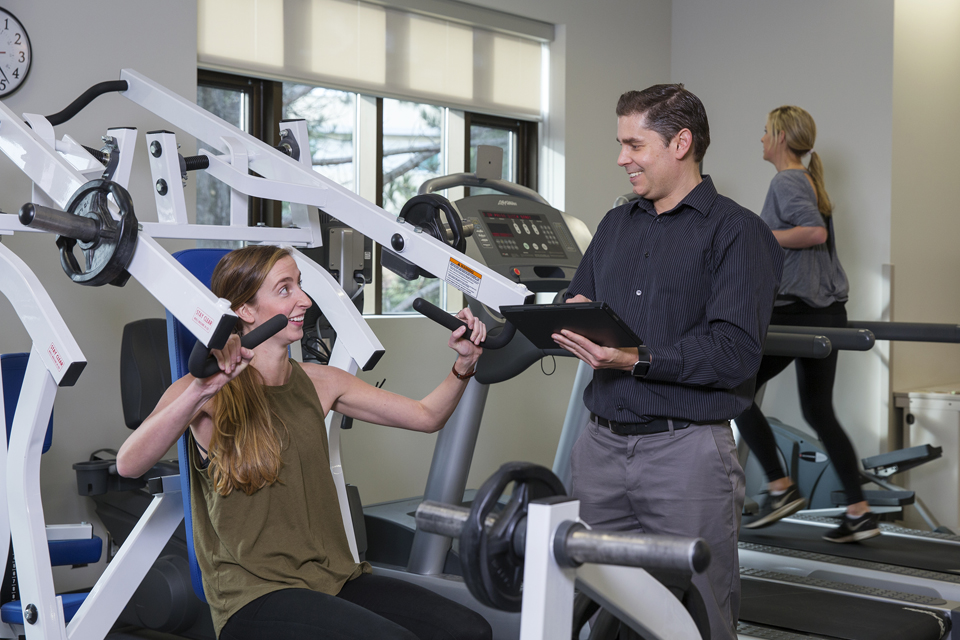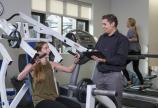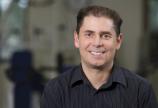Already blown your New Year's resolution?

Already blown your New Year’s resolution to get more physical exercise? You’re not alone. Exercise psychologist Ryan Rhodes studies how to motivate people to fulfill their exercise intentions. Research shows that less than a third of beginners follow through with their intentions after six months. Much of the drop-off happens within the first two weeks, says Rhodes, director of the University of Victoria’s Behavioural Medicine Lab and associate director of the Institute on Aging and Lifelong Health.
Upcoming event: "How Do I Do It? Transforming My Resolutions Into Exercise Habits." Learn more about what you can do to exercise your way to a healthier and happier life. Jan. 25, 6:30-8:00 p.m. in the David Lam Auditorium (MacLaurin Building A144). This public lecture is free. Learn more.
Q. Most of us know this, but it bears repeating: what are the benefits of regular exercise and how much do we need?
A. Regular physical activity can prevent or reduce the symptoms of over 25 chronic conditions including heart disease, Type-2 diabetes, depression and some cancers. Public health guidelines suggest adults perform at least 150 minutes of moderate intensity or 75 minutes of vigorous intensity physical activity per week. But it’s important to recognize that even small amounts of physical activity are better for your health than nothing. Every minute of physical activity counts!
Q. How many of us aren’t getting enough exercise?
A. Studies that use self-reported physical activity generally show that just over half of Canadians may be getting the recommended amount of physical activity, while studies that use objective monitors indicate that as few as 20 per cent of adult Canadians are active at recommended guidelines.
Q. If regular exercise is what you call “the magic pill” that’s associated with the reduction of many chronic diseases, including the major killers, why don’t we do more?
A. Regular physical activity is a challenge. It can be physically unpleasant, boring, takes time out of our busy days and requires energy. What we call the “intention-behaviour gap” is an interesting phenomenon in physical activity—and healthy eating behaviours—where we consistently fail at meeting our good intentions to exercise. The best example is New Year’s resolutions: every year many people set goals to exercise, yet more than half of them fail to meet these goals even over a very short time.
Q. What are the best motivators to overcome the “intention-behaviour gap”?
A. Our research in the behavioural medicine laboratory is focused on overcoming this gap. We examine ways to improve high-quality motivation such as enjoyment, and to become a master-planner as a way of avoiding many of the barriers to physical activity before they occur. Our current research is investigating how to make physical activity a habit so we don’t rely solely on constantly motivating ourselves, so exercising becomes a meaningful part of everyday life.
Rhodes, the Faculty of Education Research Excellence Award winner for 2016, is giving a free public talk at UVic on Jan. 25, called, “How do I do it? Transforming resolutions into exercise habits.” More info
Major funding for the Behavioural Medicine Lab comes from the Canadian Cancer Society Research Institute, the Heart and Stroke Foundation of Canada, the Canadian Institutes for Health Research and the Social Sciences and Humanities Research Council.
• View a video of Ryan Rhodes talking about his research
• To view all Faces of UVic Research videos: www.youtube.com/user/FacesOfUVicResearch.
• A media kit containing a high-resolution photos of Ryan Rhodes in the Behavioural Medicine Lab is available on Dropbox.
Photos
Media contacts
Ryan Rhodes (Dept. of Exercise Science, Physical and Health Education) at 250-721-8384 or rhodes@uvic.ca
Suzanne Ahearne (University Communications + Marketing) at 250-721-6139 or sahearne@uvic.ca


